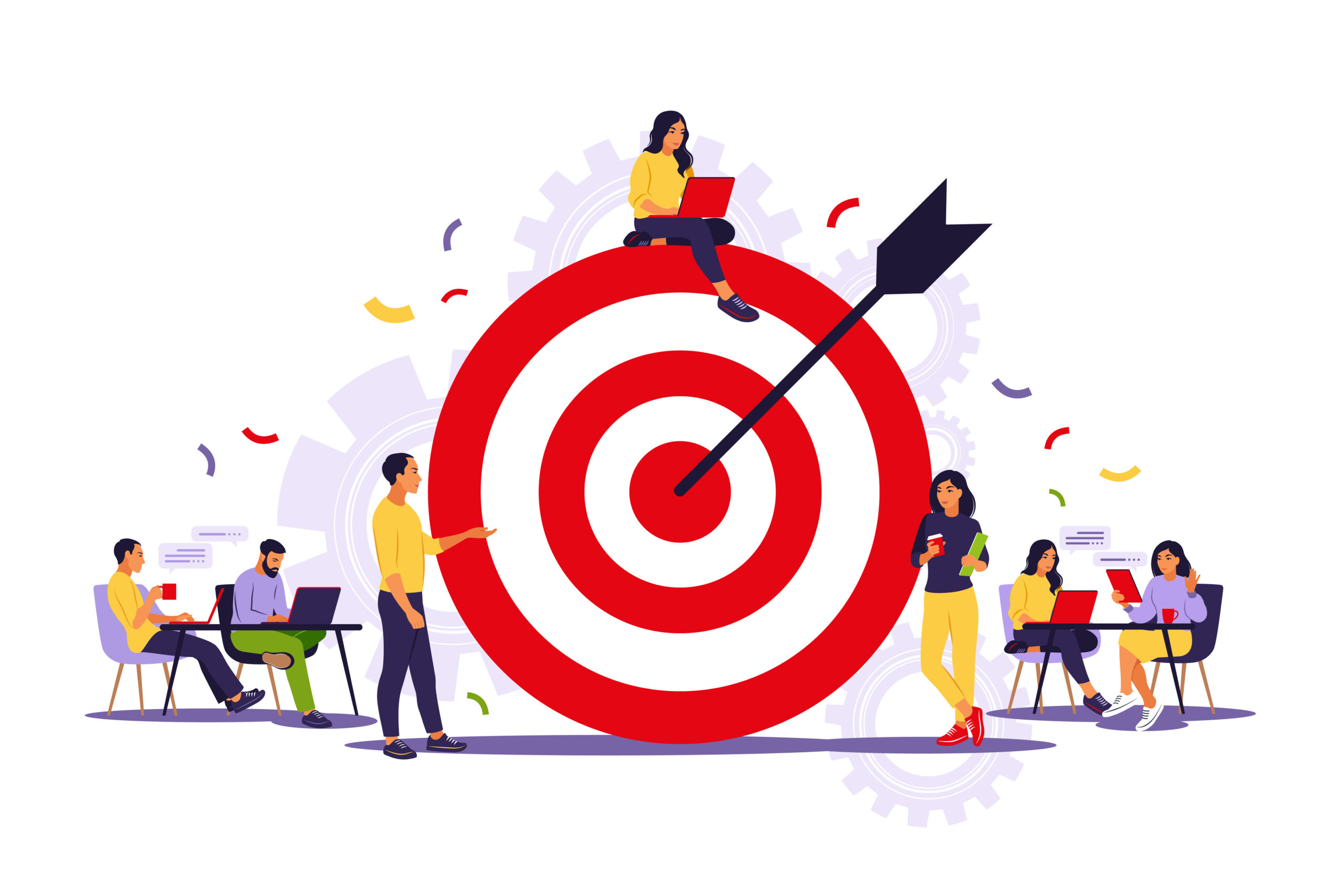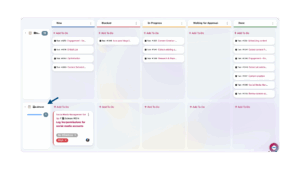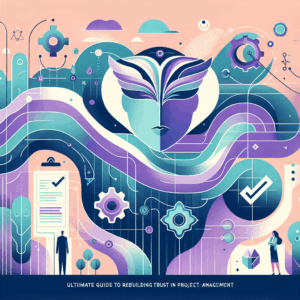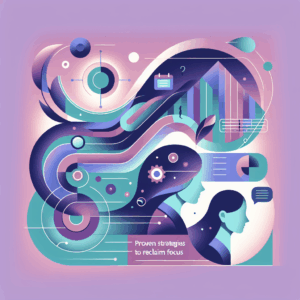Navigating the complexities of project management can be challenging, but when coupled with Attention Deficit Hyperactivity Disorder (ADHD), the hurdles take on a new meaning — and this is true whether you are a project manager working with individuals with ADHD or if you’re a project manager with ADHD.
Fortunately, there are a lot of strategies and tools out there to better support individuals with ADHD so, whether worker or running the project, can excel in project management roles. This blog will take a look at practical techniques geared to enhance focus, boost organization, and maximize productivity for project managers with ADHD. Join us on a journey to discover how the fusion of ADHD awareness and project management expertise can lead to enhanced performance and project outcomes.
Estimated reading time: 14 minutes
Table of contents
Understanding ADHD in the Context of Project Management
ADHD, or Attention Deficit Hyperactivity Disorder, can significantly impact focus and organization in the realm of project management. Individuals with ADHD may face unique challenges that can affect their ability to effectively manage projects. In this section, we will delve into how ADHD influences focus and organization in project management and explore common hurdles encountered by those with ADHD in project management tasks.
The Impact of ADHD on Focus in Project Management and How to Address it
ADHD is traditionally considered a neurodevelopmental disorder that can present challenges in various aspects of life, including project management. Less discussed, however, is the fact that many of the things that ADHD is known for are occurring from a dysregulated state — a state that results from the many ways that the ADHD mind is not supported in the “real world.”
While there are lots of reasons for this, it can be really impacting in the work environment and while trying to manage projects that don’t always capture our interest. One of the key areas where ADHD can have a significant impact is on focus. Individuals with ADHD often struggle to maintain attention on activities that are not of interest — let alone focus on them for extended periods, ultimately hindering their ability to stay on track with project timelines and deliverables.
Organization plays a crucial role in project management success. For individuals with ADHD, maintaining organizational systems can be challenging — particularly as work environments often require lots of small detail tracking and reporting. This difficulty in organization can lead to missed deadlines, overlooked details, and overall project inefficiencies.
In project management tasks, individuals with ADHD may encounter common challenges such as time management and time blindness challenges, difficulty prioritizing tasks, and struggle with maintaining consistent communication within project teams. These challenges can not only affect the individual with ADHD but also impact the overall project outcomes and team dynamics.
To address these challenges, individuals with ADHD in project management can benefit from implementing strategies such as breaking down tasks into smaller, manageable steps, utilizing tools for time management and organization, and establishing clear communication channels with team members. By recognizing the unique hurdles faced by individuals with ADHD in project management and implementing tailored strategies, it is possible to enhance project outcomes and create a more inclusive and supportive work environment for the neurodivergent mind.
Strategies for Managing ADHD in Project Management
Managing ADHD in a project management workflow requires a combination of self-awareness, effective planning, and utilization of appropriate tools. Using techniques like creating detailed project plans, setting reminders for important deadlines, and utilizing project management software to track progress and tasks can also make a difference. In the work environment, systems like Leantime are built specifically to support project work when you do have ADHD.
Building Support Systems for Individuals with ADHD in Project Management
Creating a supportive environment for individuals with ADHD in project management is essential for their success. For myself, I started managing projects prior to being aware of my ADHD. My background in Nursing, however, set a great precedent for the experience because everything we did was a routine and built in a system. Reflecting back, though, there are support systems that I would have benefited from when I started and some that I built for myself.
These systems are the routines and environments that we work in and include fostering open communication on the project team and with leadership, having flexibility in task assignments, and employer based accommodations when needed. Additionally, promoting a culture of understanding and empathy within project teams can help individuals with ADHD feel valued and empowered.

The Importance of Self-Care and Well-Being for Individuals with ADHD
Prioritizing self-care and well-being is crucial for individuals with ADHD to maintain focus and productivity in project management. Engaging in activities that promote relaxation, managing stress effectively, and ensuring adequate rest can significantly enhance performance and overall job satisfaction.
Understanding how ADHD impacts focus and organization in project management is vital for creating a supportive and inclusive work environment. By recognizing the challenges faced by individuals with ADHD, implementing tailored strategies, and fostering a culture of support, project teams can help open up the unique strengths of individuals with ADHD, creating an environment for them to flourish in, and also helping to achieve successful project outcomes.

Techniques to Improve Focus in Project Management
In the fast-paced world of project management, maintaining focus is crucial for success. By implementing effective strategies and utilizing the right tools, project managers can enhance their focus and productivity. Let’s delve into some key techniques that can help improve focus in project management:.
Time Blocking: Enhancing Productivity Through Efficient Time Management
Time blocking is a popular time management technique where you allocate specific time blocks for different tasks or activities. By setting aside dedicated time for each task, you can minimize distractions and work more efficiently. This method helps in focusing on one task at a time, leading to increased productivity. Learn how to implement time blocking effectively to maximize your work output.
Task Prioritization: Achieving Success by Prioritizing Tasks
Prioritizing tasks based on their importance and deadlines is essential for staying focused. By identifying the most critical tasks and tackling them first, you can ensure that your energy is directed towards high-priority items. This approach helps in avoiding last-minute rushes and ensures that important tasks are completed on time. Explore different methods of task prioritization and how they can impact project outcomes.
Utilizing Project Management Tools and Apps: Streamlining Workflows for Enhanced Focus
Project management tools and apps offer a wide range of features that can streamline workflows and enhance focus. From task tracking and collaboration to time management and resource allocation, these tools provide a centralized platform for managing projects efficiently. By leveraging the capabilities of project management software, teams can stay organized, communicate effectively, and focus on achieving project goals. Discover the latest trends in project management tools and how they can revolutionize the way you manage projects.
Mindfulness Techniques: Cultivating Focus and Clarity
In addition to time management and task prioritization, incorporating mindfulness techniques can further enhance focus in project management. Mindfulness practices, such as meditation and deep breathing exercises, can help project managers reduce stress, improve concentration, and boost creativity. By integrating mindfulness into daily routines, project managers can develop a clear and focused mindset, leading to better decision-making and problem-solving skills.
Continuous Learning and Skill Development: Fostering Focus and Adaptability
Continuous learning is essential for staying competitive in the field of project management. By investing in skill development and staying updated on industry trends, project managers can enhance their focus by expanding their knowledge and capabilities. Engaging in professional development opportunities, attending workshops, and pursuing certifications can not only sharpen project management skills but also foster adaptability and resilience in dynamic work environments.
By incorporating techniques like time blocking, task prioritization, utilizing project management tools, mindfulness practices, and prioritizing continuous learning, project managers can sharpen their focus, adapt to challenges, and drive better results. Embracing a holistic approach to focus enhancement can lead to improved efficiency, reduced stress, and successful project outcomes. Stay ahead in project management by mastering these focus-enhancing techniques and cultivating a mindset geared towards productivity and success.
Enhancing Organization Skills for Project Success
The Power of Detailed Planning
One of the fundamental pillars of successful project management is the art of creating detailed plans. By meticulously breaking down the project into smaller, manageable tasks, setting clear deadlines, and efficiently allocating resources, project managers can lay a solid foundation for success.
Harnessing the Strength of Reminders
In conjunction with detailed planning, the strategic use of reminders can significantly boost organizational skills. Leveraging tools like interactive calendars, task management applications, or advanced project management software can aid in setting timely reminders for crucial deadlines and milestones, ensuring that no important task slips through the cracks.
Fostering Clear Communication within Project Teams
Clear and effective communication stands as a cornerstone of project success. Project managers should underscore the significance of regular updates, well-structured meetings, and constructive feedback sessions to foster a collaborative environment where every team member is aligned with project objectives and working harmoniously towards achieving them.
The Art of Delegation
Delegation emerges as a vital component in enhancing organizational skills within project teams. By assigning tasks based on individual strengths and expertise, and instilling trust in team members to deliver quality results, project managers can streamline workflow, distribute workloads equitably, and elevate overall project efficiency.

In Leantime, for example, aligning the work and prioritizing the work based on interest gets even easier with task sentiment. In task sentiment, on the My Work Dashboard, you are able to rate how you feel about tasks on a scale of red angry face emoji to unicorn. A personal feature, we don’t share how you feel about what to dos. That said, the future version of this feature includes making recommendations on who to assign work based on their interests ( while still maintaining privacy). Assigning work based on interest is known to increase productivity — where folks are more productive when they work on things they’re interested in.
Embracing Technology for Enhanced Organization
Embracing cutting-edge technologies can revolutionize organizational skills. Integration of project management tools, cloud-based collaboration platforms, and automation software can streamline processes, enhance team coordination, and drive productivity to new heights.
Cultivating Adaptive Strategies
Flexibility and adaptability are key traits in navigating the dynamic landscape of project management. Encouraging team members to embrace change, adapt to unforeseen challenges, and pivot strategies when necessary can fortify organizational skills and ensure project resilience.
Continuous Learning and Improvement
Lastly, fostering a culture of continuous learning and improvement is paramount for sustained project success. Encouraging team members to seek new knowledge, refine existing skills, and learn from both successes and setbacks can drive innovation, enhance efficiency, and propel projects towards excellence.
With a robust foundation built on detailed planning, effective communication, strategic delegation, technological integration, adaptive strategies, and a commitment to continuous improvement, project managers can elevate their organizational skills and pave the way for unparalleled project success.
Balancing ADHD Challenges with Project Management Goals
Living with ADHD can present unique challenges when trying to balance project management goals. It requires a tailored approach to maintain motivation and momentum while adapting project management techniques to suit individual needs.
Tips for Maintaining Motivation and Momentum
Living with ADHD can make it challenging to stay motivated and maintain momentum on projects. Here are some additional tips to help:
1. Embrace the “illusion” of a structured routine
Here at Leantime, we take regular calls with individuals with ADHD and we find over and over again, we are individuals who work in a more cyclic pattern rather than a straight 8 hours through kind of pattern. In fact, research has found that we tend to be night owls. This doesn’t really work for the usual 9-5 kind of work environment and so there are things that we can do to establish a flexible routine that can then provide a sense of stability.
Folks with ADHD can struggle with creating habits and so we have to focus on creating automaticity, or rather, instinctual routines. It’s a bit like driving through the stoplight and not remembering if that light was green or red when you went through (for those of you that have never done this and didn’t know others did… oops). More than likely, that light was really green and your driving has become autopilot.
Those mundane tasks that are hard to complete? Some automaticity and routine can help you keep the momentum.
2. Seek accountability partners (even try body doubling!)
Sharing your goals with a trusted individual can help you stay accountable and motivated to progress. Body doubling is one way to do this and can often be seen done even in engineering workflows. Using body doubling involves working alongside another person, either in-person or virtually, who serves as a passive accountability partner. The presence of a “body double” can help create a more structured environment, reduce distractions, and provide gentle social pressure to stay on task. For project managers with ADHD, scheduling regular body doubling sessions can be an effective way to tackle complex tasks, meet deadlines, and maintain motivation throughout long-term projects.
Although calling it virtual coworking, Focusmate is an example of an online product that you can use for body doubling. Other things you can do is find online slack communities or facebook communities for your work focus and ADHD. NDconnect is an example of an online community for that.
3. Celebrate small victories with a Dopa-menu and through Incremental Progress
Incremental progress and those small victories can be tied back to dopamine and getting to where you want to be.
The following video is a talk given by Dr. Robert Salpolsky in 2011. In this talk, he is talking about the dopamine response. The TLDR version is that dopamine is about anticipation of the goal and even drops once you get there.
The thought here then becomes, for folks like me — managing projects and products with ADHD, how do I continually experience incremental “path to the goal”? And that’s what Leantime is built for.
The other piece tied to small victories is in a Dopamine Menu. A dopamine menu is a list of curated items that you know and can treat as a reward for those times when you’re trying to get through something that is motivationally challenging. Read more about Dopamine Menus from ADDitude.
4. Explore mindfulness techniques
In some studies, mindfulness has been shown to be useful for adults in managing ADHD. Mindfulness can be breathing techniques, practicing being present, and more. It isn’t a quick fix but creates a deliberateness that can help support your activities.
Utilize technology tools
Consider using project management apps or tools to help organize tasks and deadlines efficiently.
Leantime is an example of a project management tool built for individuals with ADHD, Dyslexia, and Autism. By focusing on building features that support dopamine, intrinsic motivation and through the use of behavioral science & motivational psychology, Leantime is the only work management solution built with this as a primary driver for deciding feature roadmaps.

Adapting Project Management Techniques to Individual Needs
Project management techniques can be customized to accommodate the unique requirements of individuals with ADHD. Here are some additional ways to make project management more ADHD-friendly:
- Break tasks into smaller steps: Breaking down projects into smaller, manageable tasks can make them less overwhelming and easier to tackle.
- Set clear goals and priorities: Clearly defining project goals and priorities can help maintain focus and guide decision-making throughout the project.
- Implement visual aids: Visual tools like color-coded calendars or task boards can aid in organizing information and improving task management.
- Establish regular check-ins: Schedule periodic reviews to track progress, address any challenges, and make necessary adjustments to project plans.
- Practice effective communication: Clear and concise communication with team members or stakeholders can help prevent misunderstandings and ensure project alignment.
By combining these strategies with the initial tips for maintaining motivation and adapting project management techniques, individuals with ADHD can effectively navigate the challenges they face while pursuing their project management goals. Remember, it’s essential to embrace your unique strengths and challenges, seeking support when needed, and continuously refining your approach to achieve success. With dedication and a personalized approach, individuals with ADHD can excel in project management and reach their professional goals.
In Conclusion…
Managing projects with ADHD can be a challenging task, but with the right techniques and tools, individuals can improve their focus and organization significantly. To learn more about the struggles faced by those with ADHD and some practical recommendations for utilizing project management systems tailored to their needs, visit Leantime.io.
By incorporating tools like mind maps and kanban boards, individuals can enhance their project planning and execution processes. Leantime, as an open-source project management system, stands out as a supportive platform for individuals with ADHD, offering features that promote collaboration, accountability, and long-term focus.






